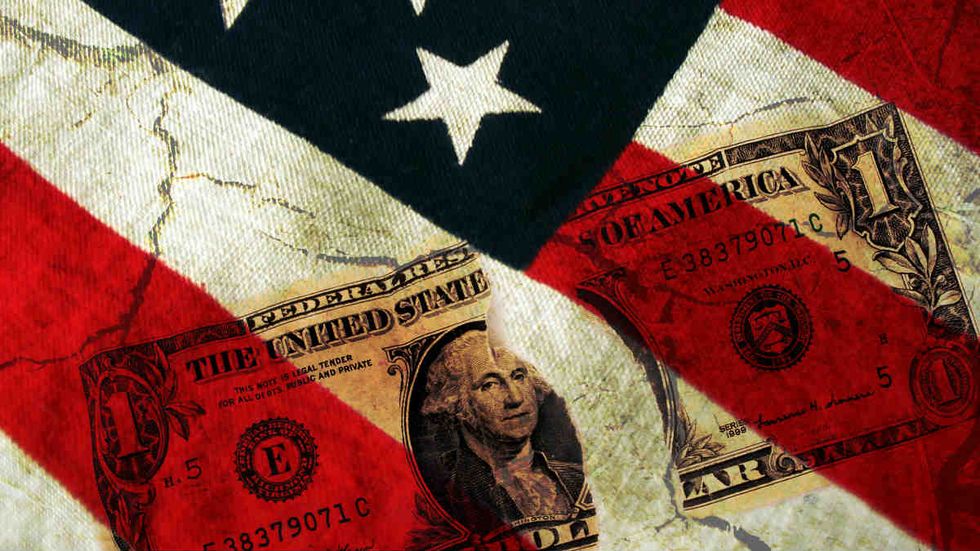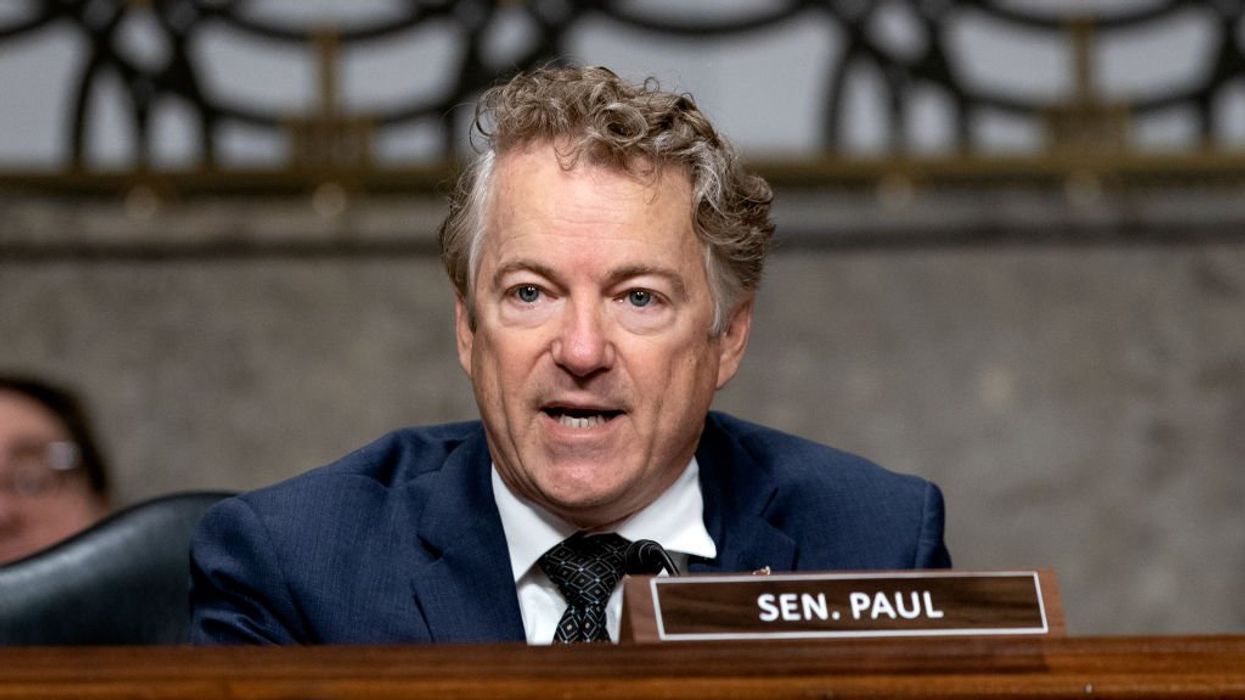
© 2024 Blaze Media LLC. All rights reserved.
New budget estimates add an EXTRA $800 billion to national debt projections after Congress' latest spending deal
August 21, 2019
America is set to add more than $800 billion more to the national debt over the next ten years than previously anticipated, according to new numbers from the Congressional Budget Office (CBO) released on Wednesday.
Specifically, the agency's new calculations have put the projected deficit for the period 2019-2029 to be $809 billion more than projections made in May, while the estimate for this year's deficit is now $63 billion higher, at $960 billion.
The report estimates that the U.S. will run a total 10-year deficit of $12.2 trillion instead of the $11.4 trillion projected back in May.
The increase, the CBO says, has been brought about by the combination of the recent deficit-expanding budget deal that Congress passed earlier this month and the emergency border funding package passed in June.
"Deficits are now expected to be larger than previously projected, primarily because recently enacted legislation raised caps on discretionary appropriations for fiscal years 2020 and 2021," CBO director Phillip Swagel said in a statement, which also said that report projects short-term economic growth and lower interest rates.
The report also anticipates that the federal deficit will first break $1 trillion in 2020, two years earlier than initially expected, and that the average deficit for the rest of the decade will sit around $1.2 trillion dollars.
"The nation’s fiscal outlook is challenging," Swagel's Wednesday statement continued. "Federal debt, which is already high by historical standards, is on an unsustainable course, projected to rise even higher after 2029 because of the aging of the population, growth in per capita spending on health care, and rising interest costs. To put it on a sustainable course, lawmakers will have to make significant changes to tax and spending policies."
The CBO also points to recent tariffs as a factor slowing potential GDP growth and economic investment; However, the director's statement cautions that actual budgetary and economic outcomes could turn out differently than the projections "on range of developments, such as unexpected changes in international conditions, business confidence, or productivity growth."
#mc_embed_signup{background:#fff; clear:left; font:14px}
/* Add your own MailChimp form style overrides in your site stylesheet or in this style block.
We recommend moving this block and the preceding CSS link to the HEAD of your HTML file. */
Want to leave a tip?
We answer to you. Help keep our content free of advertisers and big tech censorship by leaving a tip today.
Want to join the conversation?
Already a subscriber?
more stories
Sign up for the Blaze newsletter
By signing up, you agree to our Privacy Policy and Terms of Use, and agree to receive content that may sometimes include advertisements. You may opt out at any time.
© 2024 Blaze Media LLC. All rights reserved.
Get the stories that matter most delivered directly to your inbox.
By signing up, you agree to our Privacy Policy and Terms of Use, and agree to receive content that may sometimes include advertisements. You may opt out at any time.



